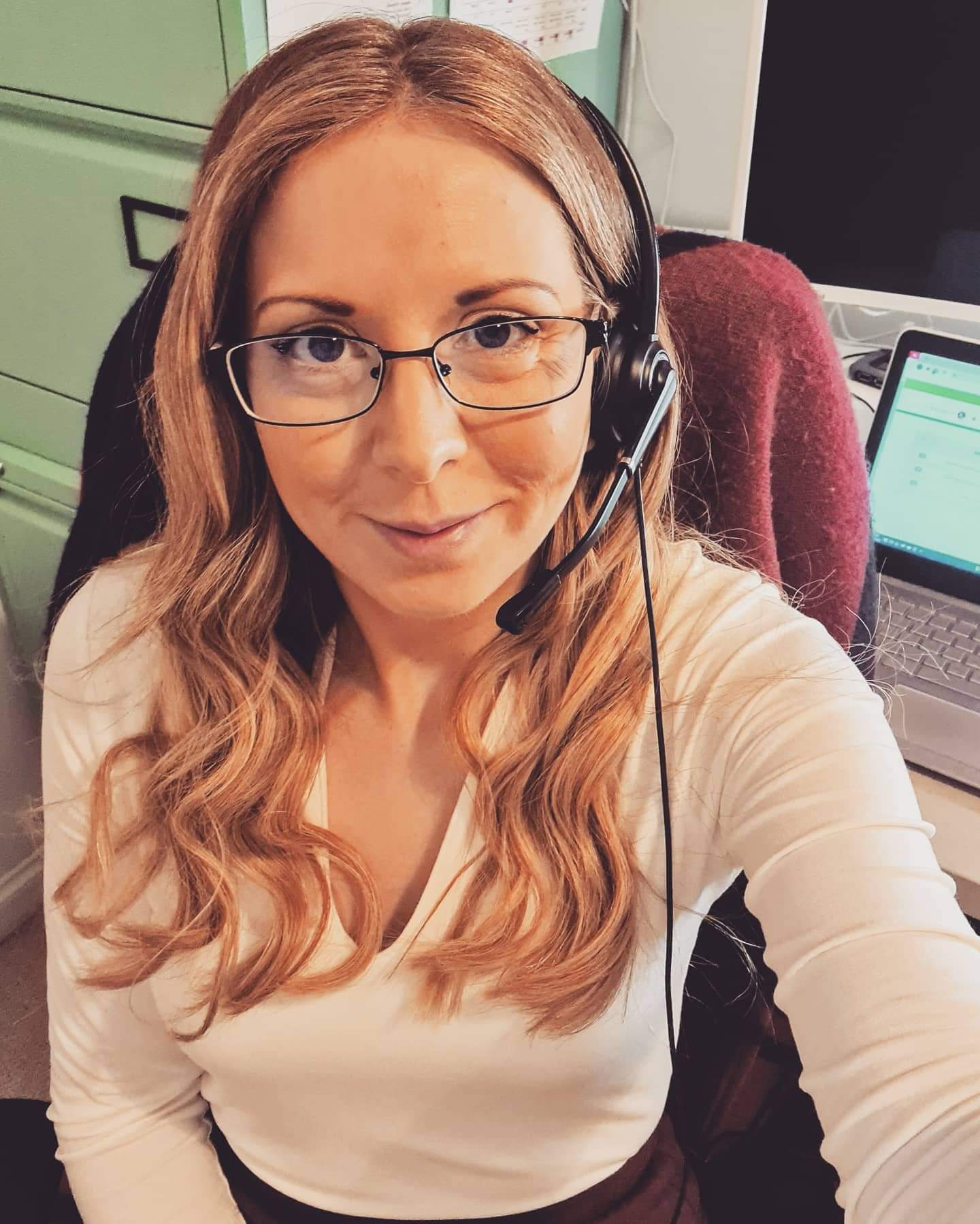I am so TIRED!!!!!!
What helps you to refresh and recharge your energy levels?
If you have been feeling overly tired recently -
Firstly it is important to listen to your body. It is most likely trying to tell you something important, so do not ignore it and try to solider on. I speak from experience.
Review the below list, and figure out what may be going on for you. Accept how you are feeling and remind yourself this is temporary. Forgive yourself for any mistakes you feel you have been making, and start making some changes.
(This was me genuinely feeling very tired myself, and the reason I felt inspired to write this post. I know I am not alone. But I also know I can make some changes and regain my energy)
Are you possibly:
- Expecting too much of yourself at the moment - lower those expectations.
- Spinning too many plates - choose to put some down.
- Making yourself ever busy to distract away from the pain of the current situation - find ways to slow down and make sure to prioritise time for your self care.
- Desperately trying to meet high standards at work and/or at home - lower those standards.
- Isolating yourself from others - spend time with people who care about you, and help to raise you up. Even if it's just texts or calls.
- Not sleeping enough or taking enough breaks - focus on sleep hygiene and schedule regular breaks into your day.
- In need of a blood test to check if there could be a physiological imbalance - make an appointment with your GP and ask for a full blood count. Anaemia and other vitamin deficiencies can be a common missed reason for prolonged tiredness, so no harm in checking!
- Recovering from a stressful time in your life - find ways to slow down and allow yourself the recovery time you need.
- Lying around the house too much due to lack of motivation - schedule regular activity, even if its just going for a short walk each day. Listen to motivational music or audiobook to inspire you.
- Eating too many foods with high fat and sugar content to compensate - focus on trying to eat a clean and healthy balanced diet that sustains you.
- Drinking too much coffee, energy drinks, or alcohol - reduce those down gradually and try to come off them. These may feel like they help in the short term, but they negatively impact on tiredness levels in the longer term.
- Smoking too much. - again reduce down or try to stop. Nicotine is a stimulant and much like the above point, they worsen tiredness levels.
- Not drinking enough water - keep a bottle of water with you at all times to encourage you to sip regularly. You would be surprised how often something as simple as mild dehydration can cause excess tiredness.
- Spending too much time on electronic devices - monitor your use of these then try to reduce down, perhaps have dedicated screen-free time each day. Or even better a screen free day!
- Feeling overwhelmed with your workload - find ways to prioritise, delegate and say no.
- Stuck in rut, automatically going through life like groundhog day - evaluate what may be missing from your life, what's important to you, and what your values are. Then set some goals and take some baby steps towards these.
We all feel tired now and then, that's normal! BUT with the pandemic, and our systems constantly being in threat mode this has become the new norm for many. You don't have to accept this. You can start to make some changes to improve your energy levels, and start to feel reinvigorated again.
What have you got to lose?!
If you feel you have tried all these things, and the tiredness does not subside then please consult your GP again as it may be worthwhile checking if there is an underlying condition affecting this.
What is Your Favourite Self-Development or Inspirational Book?

In celebration of world book day I thought I would make this post about the wonderful world of books!
I have a passion for books and a mildly addictive problem, as I buy more than I could possibly read in one lifetime. I listen to audiobooks, I read fictional books for escape, and I read academic and self-development books for my work and for my own personal growth. I even started a book club with some of my good friends. I think it is safe to say I have a love of books!
Before I launch into my post I wanted to ask all you lovely people a question. I personally think the best thing about books is finding out new and interesting reads from others. What books have changed your mind-set, inspired you to make positive changes in your life, or even helped you through some difficult times? Please comment below and tell us your recommendations.
I have so many books on this topic which have influenced my work and life. However let me start with the stunningly beautiful book I came across only this week. Interestingly it was recommended by my Taekwondo instructor. It is called ‘The Boy, the Mole, the Fox and the Horse’ by Charlie Mackesy. The photo above shows some pages from the book. In all honesty I really struggled picking a page to share from the book, as there are just so many insightful, heartfelt and deep messages embedded in this wonderfully illustrated book. I love that it is simple enough to be understood by young children (yes I have read it to my kids as a bedtime story and they loved it), and meaningful enough to be appreciated by adults. It contains simple reminders of what could be considered the truly important things in life. I also love that you don’t need to start from the beginning and go all the way through, you could just open it anywhere and have a lovely affirmation for your day. This book really brightened up my week, and so I would highly recommend it for all ages!
I will create a short list below of some other books that currently sit on my bookshelf, which I found useful for self-development and/or inspirational purposes. This list is by no means exhaustive, and we welcome further suggestions in the comments. You will notice that I have quite eclectic tastes, and this is simply because I like to draw from a wide range of sources. My musical tastes are much the same, perhaps to the dismay of my children. Not all of these suggestions will be for you, and no doubt I have missed some obvious ones. What is missing from this list that really changed your life??
- ‘Feel the fear and do it Anyway’ by Susan Jeffers
- ‘Think like a Monk’ by Jay Shetty
- ‘Everything is Figureoutable’ by Marie Forleo
- ‘Long Walk to Freedom’ by Nelson Mandela
- ‘The Life Changing Magic of Not Giving a F**k’ by Sarah Knight
- ‘The 5 Love Languages’ by Gary Chapman
- ‘Staring at the Sun’ by Irvin D. Yalom
- ‘The 7 Habits of Highly Effective People’ by Stephen R. Covey
- 'Atomic Habits' by James Clear
- ‘The Chimp Paradox’ by Prof Steve Peters
- ‘Influence’ by Robert B. Cialdini
- Pretty much anything by Tony Robbins
- ‘Six Thinking Hats’ by Edward De Bono
- 'The Art of Being Kind' by Stefan Einhorn
- ‘Parent Effectiveness Training’ by Dr Thomas Gordon
- ‘The Universe has your back’ by Gabrielle Bernstein
- ‘The Secret’ by Rhonda Byrne
- ‘The Autobiography of Martin Luther King’ by Dr. Martin Luther King Jr
- ‘The 4 Hour Working Week’ by Timothy Ferriss
- ‘The Wisdom of the Shamans’ by Don Jose Ruiz
Happy Reading Everyone!
Working From Home – a World of Contrast (How to Survive and Even Enjoy It!)
Whether you are working from home, studying from home or trying to educate your children from home, this post may just have some golden nuggets of advice and tips to help you not just survive, but thrive.
Working from home – felt like a novelty at first didn’t it? “I love the flexibility, I love that I don’t need to even get dressed or put on my makeup, I love that I save time from having to commute, blah blah blah”.
BUT…. months down the line we start to see the cracks. From my work with clients, and from my own direct experience, there are a number of downsides many of us are noticing as we start to develop unhealthy habits which can negatively impact not just our work/study, but our overall wellbeing.
For this purpose I have shared my top 10 tips for working from home below.
1 – Create a schedule or timetable for yourself.
Flexibility is fabulous, but this has meant that many are working hours which are much longer than when you were physically present in work/school/uni. Or working late at night impacting on sleep. Devise a routine or even timetable for yourself which helps you to fit in the hours you need to dedicate to work, but also ensure you are spending time on other things.
2 – Take time off.
One of the biggest issues I am finding is that people are not taking enough breaks during the day. Trust me, skipping those breaks does not help you to finish your work quicker. In fact, you are typically less productive if you skip breaks, and the quality of your work can also suffer. When you take your breaks ensure to physically move away from your work station. I recommend as a MINIMUM taking at least one short 15-20 min break, and at least a 30 min lunch break. STEP AWAY FROM THE COMPUTER when you do so!
Also please, please, please take your annual leave! I know people hold off because it feels there is not much reason to take time off at the moment, or are waiting in hope of better times where you may even be able to travel. But the sad reality is that you may well lose that annual leave. ‘No big deal’ you may say, but if I asked you ‘would you rather be paid a full weeks wage working your job and usual hours, or would you rather be paid the same amount for doing whatever else you liked for that week?” It’s a no-brainer right?! You NEED that rest and restoration time. It is not a luxury, it is ESSENTIAL for your wellbeing and productivity. If your barrier is that you don’t know what you would do for that week, and you would rather work than do nothing then read tip 6 - ‘Do something else other than work’.
3 – Create strong boundaries for yourself around work, and be strict with yourself in keeping these.
The unconscious cost of working from home is that work/life balance is beginning to go out of the window, and work can start to bleed into all aspects of our life. This is not good for anyone involved. Some small adjustments can really make all the difference here. For example - you know that lovely timetable you have now created for yourself because of suggestion number 1? STICK TO IT! The sky usually will not fall if you don’t manage to finish absolutely everything that day. Switch off from work during your down time completely – this means switching off any kind of notifications you get from work. Do not have your phone linked to work accounts ideally, and have a separate device which you can keep away from you during your down time so you are not tempted to even look.
4 – Create to do list, but keep your daily list short.
I know we all have a ridiculous amount which feels like it all needs done NOW. Writing down what NEEDS done is often a first good step of getting it out of your head. Keep your large to-do list separate for reference only so you don’t feel overwhelmed by it, and every morning create your smaller daily to-do list. Prioritise the minimum that is ESSENTIAL for that day, this means what cannot be left until the next working day. Only have 2 or 3 items on this list, and do them first. If this is all you get done then great, you have addressed the important and urgent tasks. However if you find you have time left, then go back to the main list and figure out what else is important that you could work on next.
6 – Do something else other than work.
All work and no play makes…..yes we all know that old saying, but it rings of a certain truth. Think about your leisure time and how you can spend it. I understand we feel limited at present, as going to the cinema, out for dinner or to the gym just isn’t possible just now. This DOES NOT mean you should fill that time with work as a consequence. Have a think, and write a list of different things you can spend your down time on. If you think hard enough, I know you could find plenty. For example a hobby, walks, exercise, self-care, reading, watch a movie, improvements around your home, planning a trip for when travel is allowed again, playing an instrument, learning a new skill, virtual social meet ups, I could go on! Find things that make you happy, give you pleasure, create some fun, or help you relax, and put them on that list.
7 – Make sure your basic needs are met .
Easy to forget this stuff, but it’s so incredibly important, as it is the foundation upon which our general wellbeing is built. Drink enough fluids, eat regular and healthy foods, get enough sleep (see previous sleep hygiene post on Facebook and Instagram), get outside regularly for fresh air, exercise (doesn’t need to be strenuous, even if it is just a short walk each day).
8 – Create a safe and healthy space conducive to work/study
Your work space should ideally be a designated area where you do nothing else except work. I know it is tempting, but try not to work from places you tend to relax such as the bedroom or couch where avoidable. Pay attention to your seating position to avoid back problems. Move around regularly, as we are not designed to remain seated for prolonged periods. For example you could set an alarm every hour to remind you to do a lap of your house.
9 – Stay in touch, socialise and have fun (virtually for now)
Make sure your interactions with work colleagues or fellow students are not just work related. What many of us are missing at the moment is that fun part and comradery of having people to relate to around work. To have others who can empathise with our frustrations, bounce ideas off and chat about our lives in general and not just about work. Where possible you could try and set up some social networking for this purpose. Get some of the fun back into the workplace where possible and appropriate.
10 – Spend some time away from screens
Much of our lives at the moment involve using electronic devices. Prior to COVID we already did spend too much time on them, and now it is through the roof! Although technology is a wonderful thing, we do need to take breaks from it. On your down-time where possible, try to ensure that you have plenty of screen free time.




